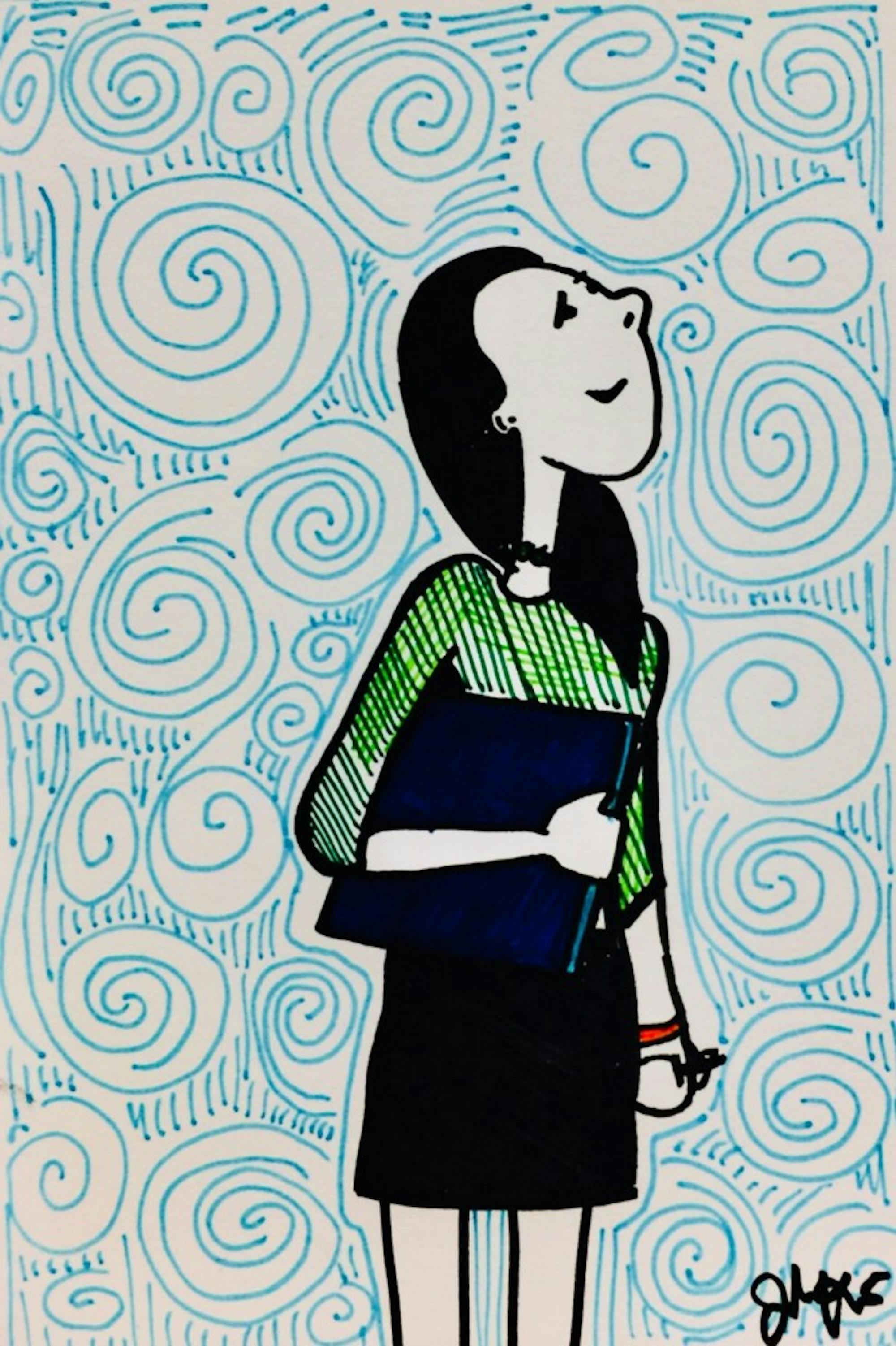Everyone knows that Dartmouth did not admit women until the 1970s. While this fact is well-publicized, its far-reaching implications regarding the treatment of women on campus are less frequently discussed within the student body.
Make no mistake, Dartmouth has made progress in the struggle for coeducation. The Thayer School of Engineering was the first national research university to reach gender parity in 2016, with a graduating class that was more than 50 percent women in a year when the national average for the share of women receiving engineering bachelor’s degrees was less than 20 percent. One of the newest clubs on campus is the Women in Media club, which brings together women with an interest in the film and journalism industries. And of course, the undergraduate population at Dartmouth is approximately equal in its gender ratio.
But it would be incorrect to say that life at Dartmouth is as kind to women as it is to men. Organizations on campus that exclusively offer membership to self-identifying females seek to combat this stigma and provide a platform through which women can support each other as well as their personal and professional goals.
According to Kristi Williams ’20, the Aquinas House Women’s Group hosts open-door discussion groups within the College’s Catholic community. Weekly, women come together to discuss philosophical issues, women’s role in the church and what it means to be a Catholic woman.
When Williams came to Dartmouth, she said she noticed the different dynamics between gender-integrated and female-dominated spaces. In certain classes, she felt more comfortable expressing herself, but other times she felt the need to constantly explain or justify her “truths” as a black woman, she explained.
Historically, Williams said, philosophical discussion about faith, religion and God has been portrayed as being driven by “great male Christian philosophers.” But the Aquinas Women’s Group speaks to a more well-rounded philosophical discourse by highlighting female members of the Catholic church like Edith Stein and Teresa of Avila.
“I would say that [Aquinas Women’s Group] breaks the glass ceiling in terms of good, faithful Catholic discourse ... where sometimes it may feel like men telling you how to live your life ... versus having other Catholic women tell you what it is like going through that experience, to live it and have that as their truth.”
The idea of sharing truths is a simple one, and yet it makes all the difference in giving women a platform to share helpful advice and experiences with each other. Women in Business is another female organization that provides a similar platform. WIB helps women interested in business connect with resources and an alumnae database that goes back to the 1990s. This organization is relationship-oriented, offering one-to-one mentorship and regularly organizing company events.
WIB presidents Erika Ogino ’20 and Natalie Garcia ’20 explained that there is a need for a female-focused group because business is a male-dominated field. She said that WIB not only supports students but also fulfills initiatives to improve workplace diversity. According to Ogino, companies will approach WIB asking to hold events to connect specifically with its members.
“[Companies] come to us and want to host events specifically to recruit women, so they’ll come in and be like, ‘Let’s do a women’s breakfast. Connect us with your members. Can you promote this event?’” Ogino said. “And we’re able to fulfill that role for them that the CPD isn’t able to, because they have to cater to all students.”
In student panels as well as presentations with alumnae and local business owners, Ogino explained how WIB addresses questions such as, “How are women supposed to navigate workspaces if a business has a ‘fratty culture?’ How have current students and alumnae navigated spaces where they are the only females? Who can give me feedback on my cover letter or interview skills?”
Another organization at Dartmouth that has given women a space to break into the male-dominated world of business is Smart Woman Securities, an organization that focuses on the hard skill sets in finance. SWS is headed by presidents Caitlin McGrail ’20 and Ama Kyerewaa ’20 this year. Members of SWS can join “mentorship families” with other students to talk about internships, the recruiting process and navigating the economics major.
McGrail shared how difficult it is to feel comfortable as a woman in finance.
“Participation is mostly by men. So it’s really helpful to have this space where we can practice stock pitches and learn finance. Less stressful,” she said.
Kyerewaa added that the group reinforces self-confidence.
“Just being there and seeing a huge group of women together really passionate about finance is also really fulfilling and empowering, because you know that all along it’s not just only me that wants to do finance,” Kyerewaa said.
Female organizations on Dartmouth’s campus are ingrained in the culture. They send out blitzes to the campus events listserv, they hold weekly meetings and their members are our friends. We forget, sometimes, how much progress they make toward breaking the glass ceiling, first on our campus, yes, but later on in the wider world where these women proceed to enact change. Perhaps organizations like this will continue to develop at Dartmouth, and with this institutional change, perhaps cultural change will follow.




